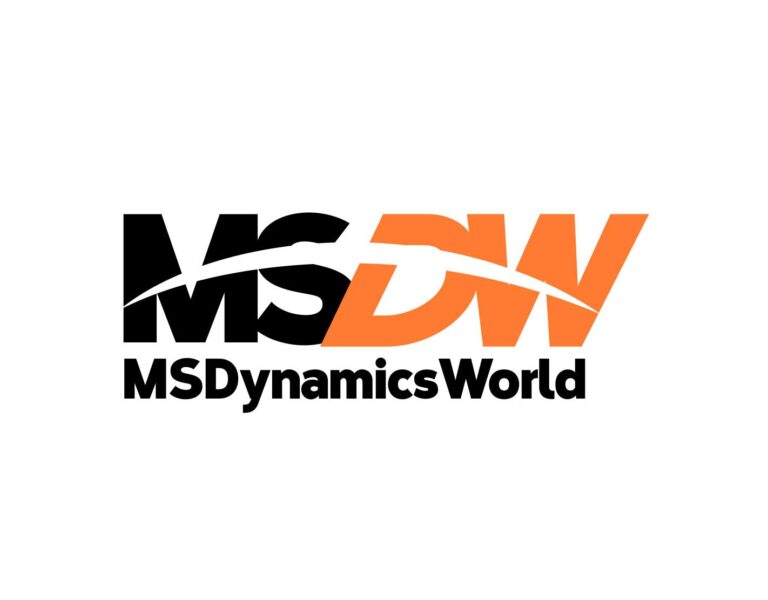Hey, entrepreneurs, solopreneurs, startup founders, and small and medium-sized business (SMB) owners — what are you reading these days to boost your business?
Better yet, what are the best marketing books for beginners? We’ve got you covered. We’ve curated a list of innovative and practical marketing books specifically for SMB owners like yourself. These resources — from modern playbooks to real-world strategies — will equip you with the knowledge and tools to succeed in today’s competitive landscape. Let’s dig in.
Books featured in this article:
- “Kotler on Marketing: How to Create, Win, and Dominate Markets” by Phillip Kotler
- “This is Marketing” by Seth Godin
- “Trailblazer: The Power of Business as the Greatest Platform for Change” by Marc Benioff
- “Epic Content Marketing” by Joe Pulizzi
- “The 22 Immutable Laws of Marketing” by Al Ries and Jack Trout
- “The 1-Page Marketing Plan” by Allan Dib
- “Influence: The Psychology of Persuasion” by Robert Cialdini
- “Contagious: Why Things Catch On” by Jonah Berger
- “Jab, Jab, Jab, Right Hook” by Gary Vaynerchuk
- “The New Rules of Marketing and PR” by David Meerman Scott
- “Building a StoryBrand” by Donald Miller
- “Email Marketing Rules: Checklists, Frameworks, and 150 Best Practices for Business Success” by Chad S. White
- “On Writing Well” by William Zinsser
- Bonus: Free e-books and guides for small business owners
Market your SMB with Salesforce AI
1. “Kotler on Marketing: How to Create, Win, and Dominate Markets” by Phillip Kotler
Touted as the father of modern marketing, Philip Kotler‘s books are indispensable reads for every entrepreneur. In “Kotler on Marketing: How to Create, Win, and Dominate Markets,” he covers the essential building blocks of marketing, making it not only one of the best marketing books for beginners, but also a perfect read for seasoned and first-time business owners. It talks about creating customer value and entering and winning new markets.
You can also learn about newer concepts like marketing on the internet, customer acquisition, and global marketing. It offers SMBs a practical blueprint with tried-and-tested marketing strategies. Plus, it helps you pick skills to compete with large enterprises more effectively.
The art of marketing is largely the art of brand building. When something is not a brand, it will be probably be viewed as a commodity.
Phillip Kotler, “Kotler on Marketing: How to Create, Win, and Dominate Markets”
Key takeaways:
- Deliver customer value: Successful marketing revolves around creating and delivering great customer value.
- The marketing mix (4 Ps): The 4 Ps is a marketing framework that combines product, price, place, and promotion to create marketing strategies that meet customer needs and business goals.
- Segmentation, Targeting, and Positioning (STP): STP is the process of dividing your market into different groups. This helps you discover your target audience and create a value proposition for them.
2. “This is Marketing” by Seth Godin
Seth Godin‘s “This is Marketing” shifts the focus from chasing mass appeal to solving people’s problems. His approach involves empathy and building deep connections with customers. The book highlights building trust and understanding your “smallest viable audience.” You should read it to learn how to create meaningful, targeted marketing that resonates with your ideal customers. You’ll also pick up tips on how to foster loyalty for sustainable growth.
Marketers make change happen: for the smallest viable market, and by delivering anticipated, personal, and relevant messages that people actually want to get.
Seth Godin, “This is Marketing”
Key takeaways:
- The power of small movements: Focus on serving a specific audience with unique needs rather than trying to appeal to everyone. This builds loyal followers and creates a real impact.
- Storytelling matters: Create stories that connect emotionally with your audience. It should resonate with their values and aspirations instead of just pushing products.
- The role of community: Create a sense of belonging around your business to develop loyal advocates who naturally champion your products and services.
- The power of the purple cow: Your offering must stand out to get noticed. Be bold enough to create something so unique that people naturally spread the word about it.
3. “Trailblazer: The Power of Business as the Greatest Platform for Change” by Marc Benioff
“Trailblazer” by Marc Benioff, founder and co-CEO of Salesforce, strongly resonates with today’s consumers. Drawing from his experiences at Salesforce, Marc shares how to integrate social impact into business. He encourages leaders to be trailblazers who use their influence for the greater good. This New York Times best-selling book helps you understand the value of creating brands that stand for something meaningful.
Whether you’re starting a business, managing a team, or running an entire company, trusting your instincts is essential in bringing a vision or idea to life.”
Marc Benioff, “Trailblazer: The Power of Business as the Greatest Platform for Change”
Key takeaways:
- Purpose-driven marketing: Marketing should go beyond product promotions and align with the company’s core values, creating a brand that resonates with socially conscious consumers.
- Community engagement: Build strong relationships with your partners, including employees, customers, and the broader community. You should actively engage and address their needs.
- The power of authenticity: Authenticity and transparency are crucial for building trust and credibility with customers and partners.
4. “Epic Content Marketing” by Joe Pulizzi
There’s a reason we say content is king. It helps build trust, positioning your business as an authority. “Epic Content Marketing” by Joe Pulizzi emphasizes building a content-driven business model rather than relying on traditional advertising. The book discusses the importance of integrating content marketing into the overall business strategy.
It offers a strategic roadmap for creating valuable, relevant content for customer attraction and retention. This book also helps you implement storytelling techniques to enhance your brand loyalty and sustainable growth.
Basically, content marketing is the art of communicating with your customers and prospects without selling.
Joe Pulizzi, “Epic Content Marketing”
Key takeaways:
- Content as a brand asset: View your content as an asset to build brand equity and establish thought leadership.
- Conduct audience research: Thoroughly research your target audience to understand their needs, interests, and pain points. You can also create buyer personas that will help you create content that connects with them.
- Prioritize multi-channel distribution: You can use a combination of owned, earned, and paid media to amplify your content’s reach. Focus on optimizing content for each channel to boost engagement.
5. “The 22 Immutable Laws of Marketing” by Al Ries and Jack Trout
Want to challenge conventional marketing wisdom? That’s what “The 22 Immutable Laws of Marketing” by Al Ries and Jack Trout does. It presents a set of fundamental principles that focus on perception, positioning, and strategy. You’ll learn the importance of owning a unique space in the customer’s mind.
This book will help you get started with marketing on limited resources. It enables you to understand the power of positioning and common marketing pitfalls. The goal is simple: creating a memorable brand identity.
The essence of marketing is narrowing the focus. You can’t stand for something if you chase after everything.
Al Ries and Jack Trout,”The 22 Immutable Laws of Marketing”
Key takeaways:
- Prioritizing perception over product: Customers make decisions based on their perceptions, not objective reality. So, focus on how customers perceive your brand.
- Creating a category: Being first in a category establishes a strong mental position with customers. If you can’t be first in an existing category, create a new one.
- Line extension traps: Line extensions dilute brand focus and weaken its core message. So, resist the temptation to extend your brand into unrelated categories.
6. “The 1-Page Marketing Plan” by Allan Dib
Would you believe us if we said you can create a marketing strategy in just one page? “The 1-Page Marketing Plan” by Allan Dib proves just that. It provides a simple, actionable framework for developing a strategic marketing plan on a single page. You’ll learn about customer acquisition and retention through strategies that drive measurable outcomes.
This book also discusses direct-response marketing principles, such as creating marketing campaigns that prompt immediate, measurable customer actions. This usually involves offering promotions, clear calls to action (CTA), and targeted messaging to track return on investment (ROI).
Tell the audience about all the effort that goes into delivering your product or service.
Allan Dib, “The 1-Page Marketing Plan”
Key takeaways:
- Truly understand your ideal customer: Clearly define your target market and create detailed buyer personas. They’ll help you focus on attracting and serving your ideal customer.
- Creating a unique value proposition: Articulate what makes your business unique and valuable to your target customer. Lead with the benefits your customers will experience — features alone rarely persuade.
- Keep it simple: Marketing should be simple and focused, avoiding complex and overwhelming plans.
- The role of content marketing: Create valuable and relevant content that educates, informs, and entertains your target audience. This can help build trust, establish authority, and generate leads.
7. “Influence: The Psychology of Persuasion” by Robert Cialdini
One of the best marketing books for beginners covers the psychology of it all. Ever wondered what really makes people say yes? Robert Cialdini‘s “Influence: The Psychology of Persuasion” breaks down six key principles — reciprocity, commitment, social proof, authority, liking, and scarcity — that shape our decisions. For entrepreneurs, this is gold. Understanding these triggers lets you create marketing that truly connects, without needing a massive advertising budget.
Messages are more likely to be successful if recipients can first be made to feel positively toward the messenger.
Robert Cialdini, “Influence: The Psychology of Persuasion”
Key takeaways:
- Build your social proof: Demonstrate social proof by showcasing testimonials, reviews, and case studies, as people are more likely to act when they see others benefiting from your product.
- Commitment and consistency add value: People strongly desire consistency with their past actions and obligations. Encourage small, initial commitments that lead to larger, more significant actions.
- The power of scarcity: Emphasize limited time offers, exclusive access, or limited quantities to create a sense of urgency. Highlight the potential for loss or missing out to motivate action.
8. “Contagious: Why Things Catch On” by Jonah Berger
“Contagious” by Jonah Berger explores the science behind why certain products, ideas, and behaviors become popular. It identifies six key principles that drive virality, providing a marketing framework for creating content and campaigns that are more likely to spread. You should read it to understand how to generate word-of-mouth marketing and create buzz around your business. Plus, it’ll help you make your offerings more shareable, even with limited resources.
Word of mouth is the primary factor behind 20% to 50% of all purchasing decisions.
Jonah Berger, “Contagious: Why Things Catch On”
Key takeaways:
- Social currency works wonders: People share things that make them look good or feel smart. So, leverage gamification or achievements to give people that sense of pride
- Tap into emotions: Focus on creating content that evokes strong emotional responses.
- The value of stories: Make your message stick by telling a story people will want to repeat. Ensure it’s memorable and effortless to retell.
9. “Jab, Jab, Jab, Right Hook” by Gary Vaynerchuk
Social media success hinges on building relationships and providing consistent value. And “Jab, Jab, Jab, Right Hook” by Gary Vaynerchuk will teach you the ropes of social media marketing. This book emphasizes the importance of delivering value to your audience before asking for a sale. It advocates for a “jab” (providing value) approach before delivering the “right hook” (the sales pitch).
It also highlights the need for context and platform-specific content. You’ll learn how to create content that works for different social media platforms and use them to drive business growth.
Great marketing is all about telling your story in such a way that it compels people to buy what you’re selling.
Gary Vaynerchuk, “Jab, Jab, Jab, Right Hook”
Key takeaways:
- Listen and engage: Actively monitor conversations and engage with your audience. Respond to comments, answer questions, and participate in relevant discussions to build relationships.
- Hook with purpose: Ensure your “right hook” (call to action) is relevant and provides genuine value and solutions to your customers.
- Understand platform nuances: Each social media platform has its unique audience, culture, and best practices. Tailor your content to fit the specific context of each platform for better engagement.
10. “The New Rules of Marketing and PR” by David Meerman Scott
“The New Rules of Marketing and PR” by David Meerman Scott delivers a comprehensive guide to modern marketing and public relations. It focuses on online strategies like digital marketing over traditional methods. You’ll learn to craft valuable content and use online mediums like blogs, social media, and videos. If you want to reach your target audience and build brand visibility with cost-effective marketing, this book will offer plenty of advice.
When people come to you online, they are not looking for TV commercials. They’re looking for information to help them make a decision.
David Meerman Scott, “The New Rules of Marketing and PR”
Key takeaways:
- Build connections using podcasts: Podcasting can help you reach a niche audience and build a loyal following. You can create engaging audio content to educate, entertain, and inform your community.
- Have a newsjacking strategy: This technique involves using news and media channels to share your insights and boost your visibility. Newsjacking helps you be more relevant and reach a larger audience.
- Create viral moments: Understand the psychology behind what makes things go viral and use those principles. Create shareable content that evokes an emotional response.
11. “Building a StoryBrand” by Donald Miller
Your customer is your hero, says most of the best marketing books for beginners. And that’s what Donald Miller says in “Building a StoryBrand.” It simplifies marketing through a seven-part framework to craft messaging that your customers listen to. The framework includes: Character (customer), problem, guide (your brand), plan, CTA, failure (to avoid), and success.
It provides a no-nonsense guide for creating compelling messaging without relying on agencies. It helps you connect with your customers and grow your business with limited marketing resources. This is why it’s a must-read for small business marketing.
In every line of copy we write, we’re either serving the customer’s story or descending into confusion; we’re either making music or making noise.
Donald Miller, “Building a StoryBrand”
Key takeaways:
- Customer is the hero: Identify what your customers want and how your business can help them achieve it.
- The role of branding and visuals: Visuals and branding should support your business’s story. Focus on creating clear, consistent, and memorable branding.
- Importance of feedback: Collect and implement customer feedback to refine your content strategy constantly. This helps you craft content that meets your audience’s needs and challenges.
12. “Email Marketing Rules” by Chad S. White
“Email Marketing Rules” by Chad S. White offers a comprehensive guide to email marketing. It provides checklists, frameworks, and best practices for creating successful campaigns. The book covers various topics — from developing a great strategy to crafting attractive designs. It delves into key performance indicators (KPIs), like email deliverability, bounce rate, web traffic, subscriber growth, and open rates.
It also covers how automation and artificial intelligence (AI) can help. You’ll learn how to build strong relationships with your audience and drive conversions better. It helps you master email marketing and use it as a valuable channel for growth.
Email marketing is preferred by consumers both young and old.
Chad S. White, “Email Marketing Rules: Checklists, Frameworks, and 150 Best Practices for Business Success“
Key takeaways:
- Effective subject lines: Write subject lines that are concise, relevant and incite curiosity. A/B test different subject lines to improve performance and identify what resonates with your audience.
- Focus on subscriber acquisition sources: Implement strategies to acquire new email subscribers through various sources. You can capture email addresses by using website forms, landing pages, and social media.
- Count on automation: Use automation to deliver personalized and timely messages based on customer behavior. Set up automated sequences for welcome emails and abandoned cart reminders for your small business commerce.
Start selling online with Starter Suite
Set up your digital storefront, engage customers, and sell more using a commerce-ready platform with integrated tools for every sale.
13. “On Writing Well” by William Zinsser
Writing skills are the cornerstone of great marketing. In William Zinsser‘s “On Writing Well,” you’ll learn how to write with simplicity, clarity, and a strong voice. This timeless guide to effective non-fiction writing offers advice on reducing clutter and writing engaging prose.
You should read it to improve your communication across all platforms. Whether it’s website copy, marketing material, emails or customer service responses. It’ll give you the essential skills to deliver your message with greater impact, like all good writers do.
Clear thinking becomes clear writing; one can’t exist without the other.
William Zinsser, Author of “On Writing Well”
Key takeaways:
- The power of the active voice: Write in an active voice whenever possible to sound more direct, vigorous, and engaging.
- Aim for simplicity: Avoid unnecessary jargon and convoluted phrasing and simplify your word choices, sentences, and overall writing style.
- Pay attention to sound and rhythm: Read your writing aloud to check for flow, rhythm, and clarity. Play with sentence structures and length to create engaging text.
Just get started.
No matter where you are on your journey as a small business owner, you can get started with Starter Suite — the all-in-one AI CRM your SMB needs.
Bonus: Free e-books and guides for SMB owners
Right alongside these marketing books for beginners, these digital guides and books will equip you with all the wisdom you need to market your growing business like a pro. And, we’re providing a hand-picked list of resources trusted by successful SMBs worldwide. Combine your learnings and these frameworks and you’ve got a recipe for success.
FREE GUIDE: The Guide to Social Media for Small Business Marketers
What does it take to win on social media today? Download this free guide from Salesforce for tips and tricks on social media engagement and publishing. It provides easy tips to connect with your audience through social listening, sentiment analysis, and influencer marketing. You’ll learn to:
FREE GUIDE: 5 Blueprints for Creating Email Moments
Email marketing is a cost-effective, direct channel to nurture customer relationships. You can get Salesforce’s free guide on email marketing to learn all about crafting personalized communication to drive more sales and build brand loyalty. As the name suggests, this ebook offers multiple blueprints that help you create moments that matter to your subscribers. Here’s what to expect from this guide:
- How to create welcome emails with a clear CTA
- The importance of mobile-first email templates
- How AI can personalize product and content recommendations
- Tips to reduce cart abandonment and improve sales
FREE REPORT: Small & Medium Business Trends Report
We spoke to 3,300+ global SMB leaders to create our Small & Medium Business Trends Report. Discover how growing businesses are investing in technology to compete with large enterprises. You’ll learn how to use AI and Agentforce to deliver 24/7 customer service and experiences to delight your customers. These will be your key takeaways:
- Why SMBs are increasing their investments in data management
- Using AI for multiple use cases can derive better results
- The impact of technology on customer experiences
- Insights on driving long-term success
FREE GUIDE: Maximize Your CRM Productivity
Talking about technology and SMB growth without a customer relationship management (CRM) tool is incomplete. CRMs give a 360-degree view of your business across sales, marketing, customer service, commerce, and productivity. A CRM for SMBs helps you scale your business and manage your customer journeys throughout your growth process. It also automates tasks like lead tracking and follow-ups, freeing up your time for more strategic tasks.
Get the free ebook from Salesforce to discover how a CRM can make you and your team more productive — all while uncovering growth opportunities. You can learn the following:
- Saving time and automating routine tasks with AI
- How to improve your productivity and experience less burnouts
- Using Trailhead and Trailblazer community to access on-demand learning and network with other SMB leaders
- How CRMs can be a cost-effective solution for SMBs
FREE GUIDE: Maximize Your CRM Productivity
Get the free ebook from Salesforce to discover how a CRM can make you and your team more productive — all while uncovering growth opportunities. You can learn the following:
- Saving time and automating routine tasks with AI
- How to improve your productivity and experience less burnouts
- Using Trailhead and Trailblazer community to access on-demand learning and network with other SMB leaders
- How CRMs can be a cost-effective solution for SMBs (Back to top.)
Grow Your Small Business With AI Agents
Learn how autonomous AI can scale your small business for efficient growth in our free e-book.
Invest in your business’ future with these marketing books
Marketing is a solid foundation for building customer value and lasting growth. These books and guides offer great insights and tips to turn your learnings into tangible results.
For seamless implementation, Salesforce is the perfect partner. It’s an all-in-one platform for managing customer interactions, sales cycles, collaborations, and marketing. Just get started. No matter where you’re on your journey as a small business owner, you can get started with Starter Suite — the all-in-one AI CRM your SMB needs. Start it up. If you’re looking for more customization, explore Pro Suite.
Already a Salesforce customer? Activate Foundations and try out Agentforce.
AI supported the writers and editors who created this article.







